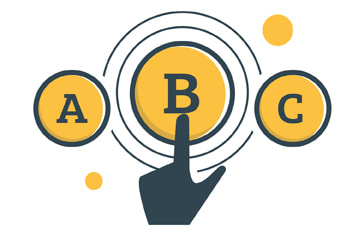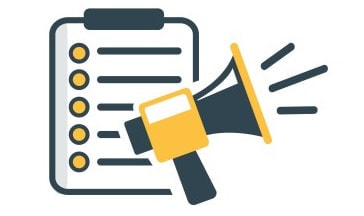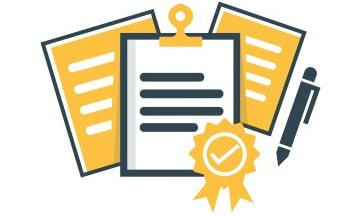Loans for Beneficiaries - The Definitive New Zealand Guide
We explain the types of loan available for anyone receiving a job seeker support or other benefits, the potential risks of taking a loan and some cost-effective alternatives
Updated 1 October 2022
Not having a safety net while you’re unemployed is most likely going to create a lot of stress. If you’re not able to keep up with the costs of living, it’s very tempting to consider a quick fix with a loan. However, not many companies want to lend to beneficiaries because of the risk of not being repaid. This means that what’s available tends to be high-interest and can cause more problems later on.
If you’re not currently working, there are a number of options for a loan. We evaluate payday loans, Work and Income advances, borrowing from friends, low-cost loans and more. Our guide covers:
Important: Please do not rush reading this guide. We know a loan is your focus right now; this guide contains many options that can help you. We have put it together carefully for your benefit. Spending 5-10 minutes reading will help you make a sensible decision.
Do You Have Bad Credit? If you have bad credit (but have a paid part-time or full-time job), we suggest reading our Bad Credit Loans guide.
Not having a safety net while you’re unemployed is most likely going to create a lot of stress. If you’re not able to keep up with the costs of living, it’s very tempting to consider a quick fix with a loan. However, not many companies want to lend to beneficiaries because of the risk of not being repaid. This means that what’s available tends to be high-interest and can cause more problems later on.
If you’re not currently working, there are a number of options for a loan. We evaluate payday loans, Work and Income advances, borrowing from friends, low-cost loans and more. Our guide covers:
- Beneficiary Loans - Frequently Asked Questions
- 10 Beneficiary Loan Options (and What to Watch Out For)
- Conclusion: Beneficiary Loans and Making the Best Decision
Important: Please do not rush reading this guide. We know a loan is your focus right now; this guide contains many options that can help you. We have put it together carefully for your benefit. Spending 5-10 minutes reading will help you make a sensible decision.
Do You Have Bad Credit? If you have bad credit (but have a paid part-time or full-time job), we suggest reading our Bad Credit Loans guide.
Know this first:
- Loans are available for beneficiaries, but they usually come with very high-interest rates.
- The New Zealand government changed the law in May 2020, meaning interest and fees are capped at 100% of the loan, but the interest rates charged are still high.
- Per this NZHerald article, people borrowing from high-cost lenders can't be charged interest and fees more than 100% of the amount they borrowed and daily interest rates have been capped at 0.8%.
- Most lenders ask for security – i.e. a guarantee, to make sure the loan is repaid. Usually, you’ll be asked if you own a car or know someone who will guarantee the loan (i.e. repay it) if you fail to repay it.
- Payday loans and truck loans are best avoided – they usually make a debt issue even worse.
- There is help available from the government - our guide to Work and Income benefits explains how you can apply for money for small, one-off expenses, such as food, transport, furniture, and clothing.
Beneficiary Loans - Frequently Asked Questions
Anyone receiving a benefit may feel 'excluded' from the financial system, but this is not the case at all. To make sure you're informed, our FAQs answer popular misconceptions.
Can I get a loan if I'm unemployed?
Yes – but at a higher than normal interest rate. The loans you see advertised for 5.99% p.a. or at least under 10% p.a. are usually only available to someone with a regular income and good credit score. As part of the application process, the lender asks for payslips or proof of income. If you’re a beneficiary, then you can still apply for a loan, and many lenders specialise in ‘no income, no problem’ loans. Such loans, however, will almost certainly have a high-interest rate which gets dangerous if you miss a payment.
If you have bad credit (but have a paid part-time or full-time job), we suggest reading our Bad Credit Loans guide.
If you have bad credit (but have a paid part-time or full-time job), we suggest reading our Bad Credit Loans guide.
I’ve never heard of the companies offering loans for beneficiaries – should I trust them?
The banks don’t offer beneficiary loans, nor do credit unions. Those that do include the likes of Cash Converters, Instant Finance and other high-interest, high-fee lenders. Because they don’t rely on their reputation like banks do, it’s essential that you know exactly what you're getting yourself into.
How much can I borrow with a beneficiary loan?
Beneficiary loans operate exactly like payday loans – they are short-term, high-interest and costly if you miss a payment. You will usually be able to borrow up to $300, $500 or even $800, but rarely above that.
Are there alternatives to taking out a beneficiary loan?
Yes, there are. Firstly, whatever urgent costs you need, Work and Income may be able to help. Talking to a caseworker about a specific need is the best way to know what you can get. Any interaction with Work and Income needs documentation and evidence to support your claim – read our tips guide to make sure you’re adequately prepared.
Beyond Work and Income, it’s a good idea to make an appointment with a Budget Advisor who offer free assistance to get your finances on track while you’re out of work. Budget Advisors may be able to provide details on low-interest (or even 0% interest) loans that are offered by local charities. Whatever your situation, a budget advisor will provide ongoing support.
Beyond Work and Income, it’s a good idea to make an appointment with a Budget Advisor who offer free assistance to get your finances on track while you’re out of work. Budget Advisors may be able to provide details on low-interest (or even 0% interest) loans that are offered by local charities. Whatever your situation, a budget advisor will provide ongoing support.
10 Beneficiary Loan Options (and What to Watch Out For):
You don't need to rush into taking out a loan - there are many alternatives, and we explain them below in detail.
Important: Please do not rush reading this guide. We know a loan is your focus right now; this guide contains many options that can help you. We have put it together carefully for your benefit. Spending 5-10 minutes reading will help you make a sensible decision.
Important: Please do not rush reading this guide. We know a loan is your focus right now; this guide contains many options that can help you. We have put it together carefully for your benefit. Spending 5-10 minutes reading will help you make a sensible decision.
Advance Payment of Benefit (from Work and Income)An Advance Payment of Benefit is a one-off payment to help you pay an essential or emergency cost if you can't pay it another way. You need to be on a benefit to qualify for this help and you will have to pay the money back. Like any loan, Work and Income needs to approve the loan, so you'll need evidence to support your application.
More details: Visit the Work and Income info sheet and our Work and Income tips guide for maximising the chances of being approved. |
Payday Loan (a high risk, high cost option)Payday lenders are everywhere – on the TV, online, advertising on buses and newspapers. All payday loans have high interest, and even if your repayments end up being a maximum of 100% what you borrow. For example, if you borrow $500 for urgent car repairs, you will have to pay back $1,000 after a few months given the high-interest rates. Managing daily expenses with a beneficiary income isn’t easy. Adding in payday loan repayments will, most likely, become unaffordable.
More details: Check out our Payday Loans Review |
Accessing KiwiSaver (a low risk option, but you'll need to have a balance available)If you have a KiwiSaver balance, you may be able to access it for free. You will need to prove that you cannot meet your 'minimum living expenses', for example basic food and grocery items, and accommodation costs (including rent, mortgage repayments, interest etc), among other expenses.
Best of all, you won't need to take a loan and the money comes in a matter of weeks once approved. You'll need to submit a hardship application, and supply the required evidence. More details: KiwiSaver hardship application |
Secured and guarantor loans (a medium risk, low cost option)Lenders don’t see the money you receive from Work and Income as ‘income’, but they will be more likely to offer loans if you have security or a guarantor (someone who will repay the loan if you don’t). Such loans are risky – if you pledge your security (be it a car, home or something else), failure to repay the loan means the lender will own what you pledged. If you’ve asked someone to guarantee a loan (usually a parent, friend or sibling), this can cause a whole lot of trouble if and when you miss a payment.
|
Credit unions (a low risk, low cost option)New Zealand has many credit unions – First Credit Union, NZCU Baywide and NZCU South are some examples. Credit unions charge lower interest rates payday lenders and may be able to help. They can also offer repayment plans and more flexible loans.
Read our reviews here: First Credit Union, NZCU Baywide and NZCU South |
Talk to your bank (a low risk, low cost option)COVID-19 changed everything, and banks have some responsibility to help. If you owe money on credit cards or personal loans, ask about a hardship application. A hardship application asks your bank to help you work out a more flexible repayment plan.
|
Use a credit card (a low risk, medium cost option)If you already have a credit card and you have still not maxed it out, credit card debt is very likely to be cheaper than taking out a new loan. You’ll have to meet the minimum repayments (find out what your bank charges here) – it will either be 2%, 3% or 5% of the balance each month).
It’s still possible to apply for a credit card if you're temporarily out of work – banks assess credit card applications on prior incomes, so you could be eligible. More details: Visit our low-interest credit cards comparison. Credit card alternative: Pay-after schemes (a low risk option, but the providers have limited use) The likes of Afterpay, Laybuy and Zip let you pay for something now and pay it back in instalments during the following weeks. You’ll usually need to pay 20% or 25% of the cost upfront, and then the remaining 75% to 80% later. Beneficiaries typically don’t have a high enough income to be able to make the repayments, so these best schemes are best avoided. More details: Check out our Afterpay, Zip and LayBuy reviews |
Free and discounted loan providers (low risk, low cost)There are a number of incredibly helpful community lenders who offer fee-free or low-interest loans to people on limited income, including beneficiaries. We list these below:
1. Good Shepherd New Zealand is a non-government, not for profit organisation, working in partnership with the BNZ, Kiwibank and three community providers - Aviva Families, The Salvation Army, and Vaka Tautua. It offers fee-free loans to people with limited incomes; schemes include no-interest loans and the StepUP loans (with an interest rate of 6.99% p.a.). Website: www.goodshepherd.org.nz. Available: Nationwide 2. The Nga Tangata Microfinance Trust offers 'no interest loans' (‘NILS’) which can be used to make asset purchases, and debt relief loans (‘DRLS’) which are used to help ease the burden of excessive debt. The debt relief loans are to a maximum of $3,000, with capital provided by KiwiBank. The applicant must pay back the loan in full within two years, and they must have been working with a budget advisor for at least six months. Website: www.ngatangatamicrofinance.org.nz Location: Nationwide |
Borrowing from friends and family (medium risk, low cost)Depending on your family situation, this can be an option to get a helping hand while you look for jobs and get back into the workforce. It's not without its risks however - if you can't repay, you can lose friends and upset people. But, for many people, it works just fine. How much to ask for and who to ask is something that needs a bit of consideration.
More details: Our guide to lending money to friends and family members is written the view of the lender (i.e. person you ask for money), but it has some very useful information. |
Loans from door sellers and trucks (a high risk, high cost option)Anyone who offers you a loan on your doorstep is likely to be trouble. It sounds good – a lump sum and a repayment-free period, but the costs quickly get out of control. The interest rates and fees will be high, and the lender does not have your best interests at heart. Worst still, someone will visit your home every week or so to collect payment. It’s ugly and can very stressful if you struggle to make the repayments.
|
Conclusion: Beneficiary Loans and Making the Best Decision
If you’re in debt, it’s time to get some help; otherwise, your situation could very likely get worse. Taking out another loan will only cause more problems. Talking to your local Citizens Advice Bureau is a great start, and urgent costs can often be met by Work and Income.
Whatever you do, don't rush into a decision. Money issues get so much worse when you take on unaffordable debt. Even though the government now caps interest in payday loans to 100% of the loan, paying back $1,000 when you borrowed $500 is still ridiculously expensive.
Whatever you do, don't rush into a decision. Money issues get so much worse when you take on unaffordable debt. Even though the government now caps interest in payday loans to 100% of the loan, paying back $1,000 when you borrowed $500 is still ridiculously expensive.
Related guides:
Popular Guides with the Best Offers
Calculators
Popular Comparisons and Reviews:
Popular Guides with the Best Offers
- Personal Loans
- Debt Consolidation Loans
- Secured Loans
- Home Renovation Loans
- Online Loans
- Bad Credit Loans
- Payday Loans
- Cash Advance
- Low Income Loans
- Same Day Loans
Calculators
- Personal Loan Calculator
- Debt Consolidation Calculator
- Refinance Personal Loan Calculator
- Home Renovation Loan Calculator
- Interest Calculator
Popular Comparisons and Reviews:














